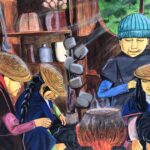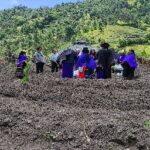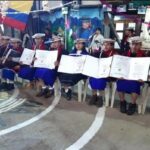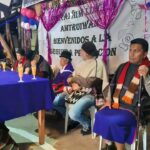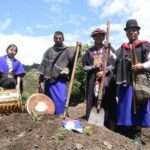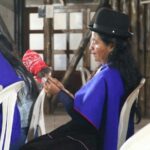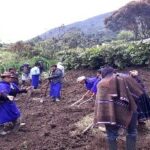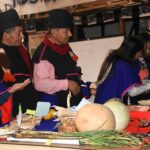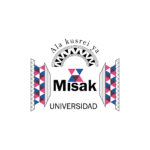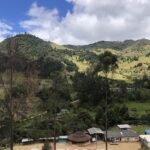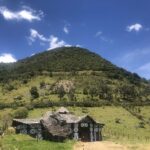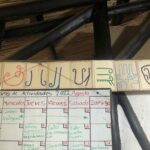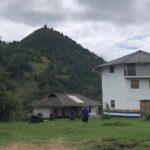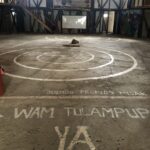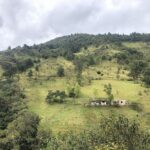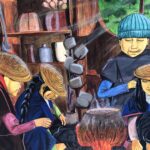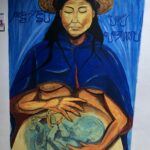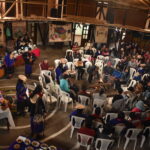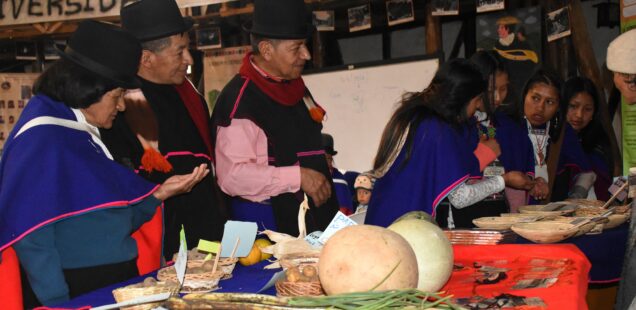
The Ya-Misak University in Guambía (Colombia) – weaving cosmovision and economy, autonomy and spirituality, local knowledge and organisational strengthening
The Ya-Misak University is an educational process born in 2010 by the initiative of the ancestral authorities of the Misak people, under the conviction that the survival of the Misak people requires not only the recovery of land (a struggle led by the Misak in the 1980s, summarised by the slogan ‘Recover the land to recover everything!’), but also the revalorisation of their own knowledge and ways of life and education (a struggle summed up by the slogan: ‘Recover the memory to recover everything!’). The philosophy of the Misak University is based on four spirals (feeling, seeing, thinking and practising), and four pillars (their own economy, administration, socio-political organisation and major law), which all have important components of community solidarity and mutual aid. The systematic reflection on the world is the basis for self-organisation and action as people. The focus of the organisation is social and epistemic justice, all of which is reflected in biocultural diversity.
The University is located at an altitude of 2,550 above sea level in the indigenous resguardo of Guambia, Misak ancestral territory, Municipality of Silvia, Department of Cauca, south-western Colombia. The region is one of the most impacted by the armed conflict in the country, and some members and activists of the Misak communities have been killed and others threatened. In this context, the strategy of self-education as a basis for territorial, economic and food autonomy takes on unusual importance. The Misak are deeply communitarian people who maintain a living and decisive link with the territory. The practice of the Minga (i.e., events, such as agricultural work, where the whole community participates) is still very strong. However, like all indigenous or local communities in the world, their way of existing, knowing and doing is being eroded by the dominant system (and in Colombia the armed conflict is a lethal factor in this sense). The ‘Mingas de Pensamiento’ of the Misak are quite original, and from there the Misak articulate their own economic vision and strategy, with objectives that aim at food sovereignty and associated practices such as agro-ecological community gardens and meetings where seeds and knowledge are exchanged.
The Misak people have achieved great cultural and political visibility in the context of social struggles for culture, territory, autonomy and land in Colombia. Their tenacious resistance and sustained defence of uses and customs (including language, dress, their own economy and spirituality) have positioned the Misak struggle as exemplary in the Colombian context. Many of their actions have inspired other movements, including environmentalists and urban youth. As an educational, political and territorial project, the Misak University serves as a guide and inspiration to other self-determination initiatives of various indigenous, Afro-descendant and peasant groups who see education playing a leading role and are committed to a community-based agroecology approach.
For more information:
https://www.misak-colombia.org/misak-universidad-2/
https://www.youtube.com/watch?v=W1WmT8GL_EE
Montaño, James. Sembrar para comer y estar contentos. Editorial Universidad del Cauca. 2022.

